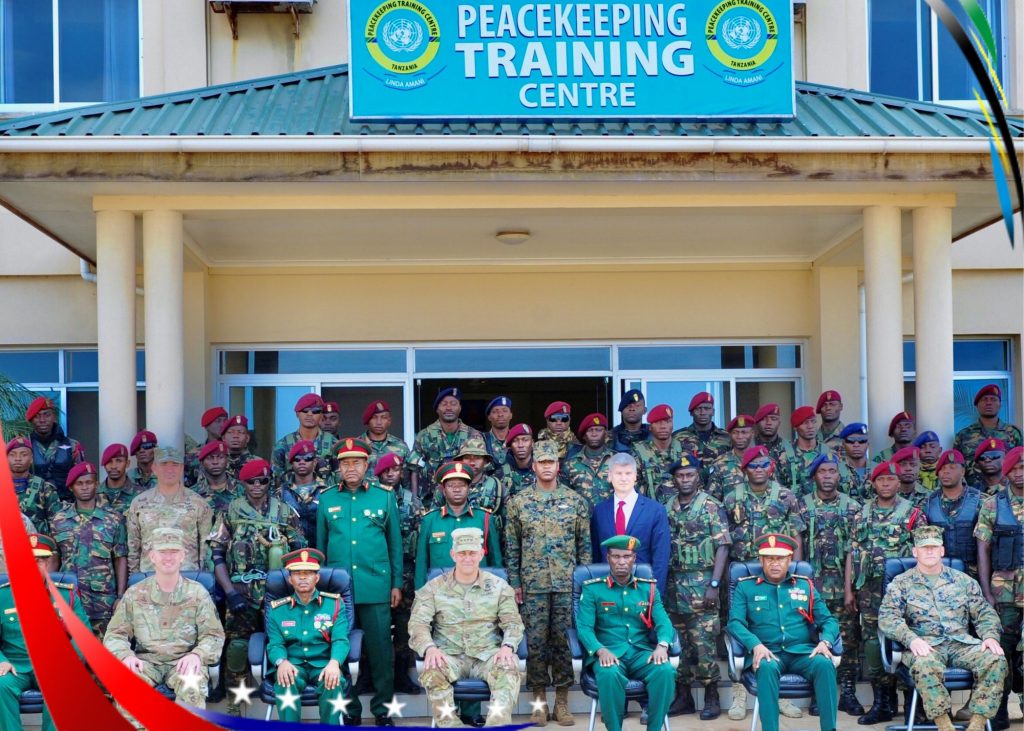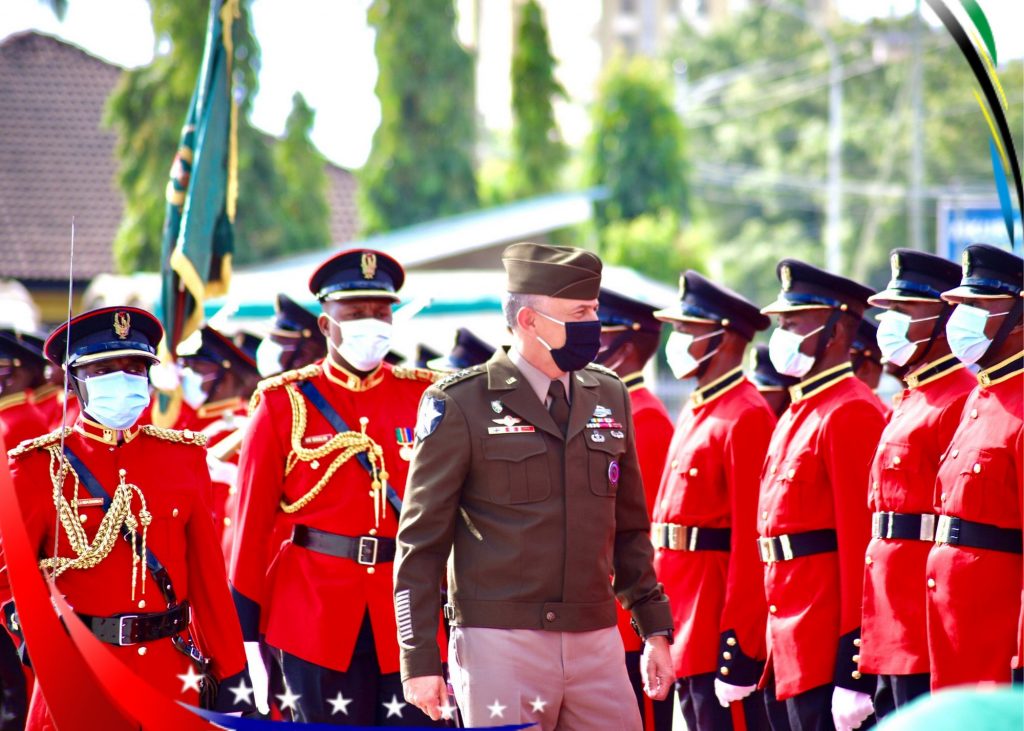
By TZ Business News Staff.
The US army’s African Command –also known as AFRICOM—is cautiously accepted in the Southern Africa Development Community (SADC) after initial outright rejection in the past. In Tanzania, research has found that the Command has failed to help the SADC nation deal with human insecurity.
“Evidence from this case study [of AFRICOM activities in an African country] suggests that in Tanzania AFRICOM has largely failed to achieve the articulated vision of a ‘combatant command plus” whose role should include helping an African country address challenges in the area of human security.
The findings are contained in an academic report by Mikenna Maroney. It forms part of a thesis presented to the Faculty of The Josef Korbel School of International Studies at the University of Denver in the US in partial fulfillment of the requirements for the degree Master of Arts in International Studies.
The Thesis is titled “AFRICOM’s Impact on International and Human Security: A Case Study of Tanzania”.
“This analysis found a disconnect between U.S. policy priorities and the reality of the security threats on-the-ground. Though AFRICOM’s partner capacity building with the Tanzanian military is important for state and regional security and is in accordance with the wishes of the country’s leadership, many of Tanzania’s security issues remain unaddressed by AFRICOM.
“More is required than building the military’s capacity and focusing on the macro-level aspects of these threats. U.S. concerns over piracy, terrorism, drug trafficking etc. should not be set aside but rather, left unaddressed, the micro-level of these threats are persistent human insecurity.
“While interagency personnel issues, funding, and restraints on the purview of the U.S. military mean it is unlikely that AFRICOM will become a whole of government combatant command, it does need to have a greater emphasis on human security in Tanzania,” the thesis report says.
The expansion of U.S. military engagement in Africa is based on American national security interests. The objective of this research was to add to existing evaluations of the U.S. Combatant Command for Africa (AFRICOM) by taking an in-depth look at its impact through a case study of Tanzania and sought to answer three questions: What is the impact of AFRICOM on executing U.S. national security policy in Tanzania? To what extent has AFRICOM addressed the conditions of human insecurity in Tanzania? What is the public perception about AFRICOM among the Tanzanian public?

The author found that Tanzania is challenged by many of the transnational threats its neighbors face including illicit narcotic trafficking, piracy, and terrorism. As one of the world’s poorest countries, economic development has failed to reach the majority of Tanzanians who also suffer from the effects of poor health and education systems, as well as the world’s 12th highest HIV/AIDS infection rate, leading to pervasive and chronic threats to human security. A strategic U.S.-Tanzanian relationship is critical for countering the threats Tanzania faces, and bolstering the country’s capacity to continue its role in addressing ongoing regional conflicts and humanitarian crises.
The author says historically, the U.S. did not have strong bilateral ties to Tanzania while China, Cuba, and Russia had strong diplomatic ties and a heavy presence in the country. Indeed, the strength of Tanzania’s ties to these countries, and its historic role as a non-aligned and socialist state have often placed it at odds with the U.S., with especially negative impacts on U.S. Tanzanian military relations.
Despite these historic strains however, security cooperation with Tanzania has become an important aspect of contemporary bilateral relations. U.S. interest in this arena stems from the 1998 terrorist bombing of the U.S. embassy in Dar es Salaam, the discovery of several Tanzanians being members of Al-Qaeda, and the growth of Al-Shabaab and its capabilities in nearby Somalia and Kenya. U.S. officials regularly cite Tanzania as an example of a positively developing country, the author reports.
This SADC nation willingly participates in almost all of the AFRICOM security co-operation training programs and exercises for which it is eligible, the author says, adding : Tanzania’s high level of participation also signals a convergence in US and Tanzanian threats perception, reflecting that US security policy actually does address security issues which the Tanzania Government finds important.
AFRICOM’s failure was found in addressing conditions of human insecurity in Tanzania. The Command is addressing human security issues, but these efforts and impacts are confined to the Tanzanian military, Maroney found.
AFRICOM’s primary means of engagement are through partner security cooperation training and exercises with the Tanzanian military, and there was some breadth to the command’s engagement–including training and exercises on humanitarian crises, pandemics etc.
Nonetheless, the table of AFRICOM’s training and exercises with AFRICOM and interviews with officials familiar with the command’s engagement with Tanzania revealed that the primary locus of concern for AFRICOM in its execution of U.S. security policy is more traditional security challenges. While partner military capacity building is necessary, recent events in Mali underscore that it is insufficient to ensuring stability, security, and preventing conflict.
Security in Tanzania is fundamentally about human security. The daily concerns of ordinary Tanzanians are the country’s chronic poverty, education, and health systems and the Tanzanian government has placed these issues at the top of its agendas. AFRICOM’s current activities in Tanzania have minimal focus and impact on Tanzania’s human security, the primary threats the country faces. Given that AFRICOM’s ultimate objective is centered on conflict prevention, a broader approach will be essential if U.S. national security policy is to successfully prevent instability and conflict.
Overall public opinion of AFRICOM in Tanzania leans negative, and is decidedly negative in Swahili language mediums. The content analysis revealed that, overall, the Tanzanian public views AFRICOM with suspicion. Download Thesis Report here.



